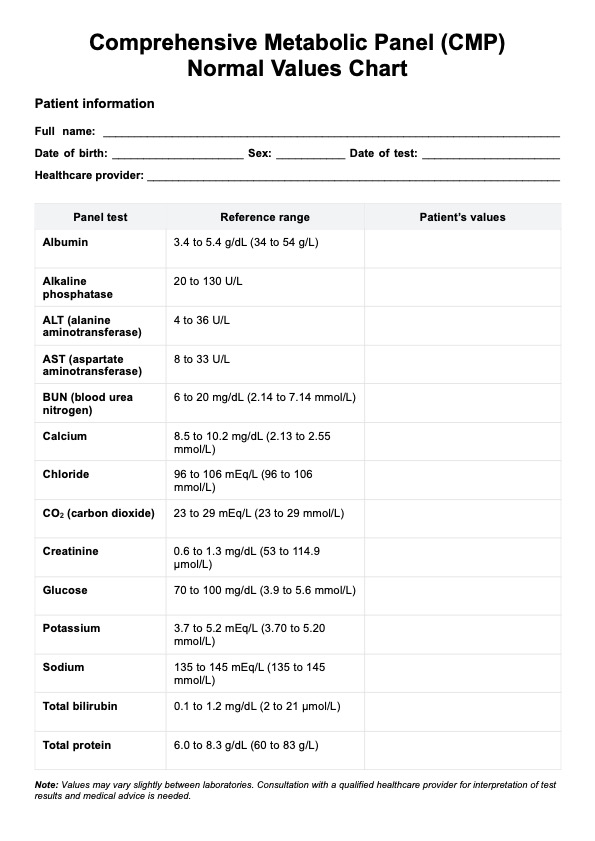Doctors or healthcare providers typically request a CMP routine blood test during check-ups or when monitoring ongoing health conditions. It helps them assess your organs like kidney or liver function, detect potential issues, or track changes in your overall health.

CMP Normal Values Chart
Use the CMP Normal Values Chart for health assessments. Download our free PDF for easy reference and reliable medical insights.
CMP Normal Values Chart Template
Commonly asked questions
A bilirubin blood test measures the amount of bilirubin, a yellow substance made when your body breaks down old red blood cells. The test helps find issues with your liver, gallbladder, or red blood cells and can detect conditions like jaundice or liver disease.
The 14 tests included in a CMP are glucose, calcium, sodium, potassium, chloride, carbon dioxide (CO2), blood urea nitrogen (BUN), creatinine, albumin, total protein, bilirubin, alkaline phosphatase (ALP), aspartate aminotransferase (AST), and alanine aminotransferase (ALT).
EHR and practice management software
Get started for free
*No credit card required
Free
$0/usd
Unlimited clients
Telehealth
1GB of storage
Client portal text
Automated billing and online payments











